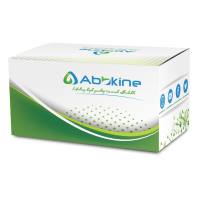NASBA: A Method for Nucleic Acid Diagnostics
互联网
906
Nucleic acid sequence-based amplification (NASBA) is a primer dependent, homogeneous, isothermal amplification process for the detection of RNA (1 ). It can result in 109 - fold amplification of a specific RNA sequence and offers the unique possibility to amplify RNA in a background of genomic DNA. Detection of RNA can be used to monitor gene expression or cell viability or can be a prognostic indication for virus replication and production. Amplification of RNA beyond the detection limit is easily achieved because of the often high copy numbers of RNA targets in a cell. NASBA already has been used for the detection of human immunodeficiency virus (HIV) (2 –11 ) hepatitis C virus (HCV) (12 ,13 ) and cytomegalovirus (CMV).


![DKFZ-PSMA-11,4,6,12,19-Tetraazadocosane-1,3,7-tricarboxylic acid, 22-[3-[[[2-[[[5-(2-carboxyethyl)-2-hydroxyphenyl]methyl](carboxymethyl)amin](https://img1.dxycdn.com/p/s14/2025/1009/171/0405943971658126791.jpg!wh200)






